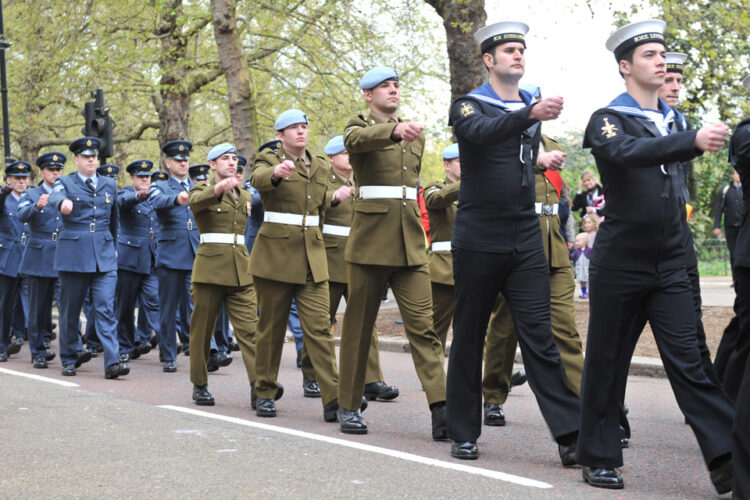By Ashley Young-
The Uk government has sent 200 armed forces personnel into NHS hospitals across London to help ease staff shortages because of covid-19.
The Ministry of Defense will provide 40 defense doctors and 160 general duty personnel, who were being held at readiness, to support hospitals for the next three weeks. The doctors are expected to help NHS staff with patient care, while the general duty personnel will work on tasks such as maintaining stocks, checking in patients on arrival, and conducting basic checks.
The deployment came amid growing staff absences in recent weeks because of covid-19 illness or isolation. In the week ending 2 January an average of 80 294 NHS staff were absent each day (table 1). More than two fifths of these absence (35 596) were due to Covid, a 41% rise from the previous week (25 273 in the week to 26 December).1 London had the highest proportion of staff absences attributable to covid, at more than half.
A spokesperson from the British Medial Association told The Eye Of Media.Com that a number of doctors in the Nhs were either isolating because they had caught Covid-19 or because they had been in contact with someone who had caught the virus.
There are many people in the medical profession who are in the army and have been brought in to assist the Nhs.
Staff had been deployed to London in response to a specific request from the NHS. They added, “These personnel will be part of a group held at readiness by the MOD to help with UK resilience tasks. They haven’t been pulled out of somewhere else to do this. They will have different areas of expertise.”
England’s health and social care secretary, Sajid Javid, welcomed the support from the military. He said, “Once again they are stepping up to assist NHS workers who are working round the clock across the capital, helping the health service through this difficult winter period where the need is greatest.”
Forty teams of five people, each comprising one doctor and four general duties personnel, are being deployed. They will be distributed flexibly and targeted at areas of greatest need, beginning in the next few days, the defence ministry said. In addition, 32 military co-responders are being deployed to provide extra capacity to the South Central Ambulance Service, which covers Berkshire, Buckinghamshire, Hampshire, and Oxfordshire, to work alongside paramedics. They are expected to be in place until the end of March.
Almost 400 military paramedics are already helping ambulance trusts in Wales and Scotland, and more than 1000 military personnel are also supporting the vaccine booster programme across the UK.
Chaand Nagpaul, the BMA’s chair of council, said, “While the government providing any additional staff is of course welcome, it must be recognised that this is a small number, comprising 40 doctors and 160 general personnel, and will not fix staff shortages in London.”
He also said it was not just London that needed support. “There is no doubt that London was hit hardest first, but omicron is now affecting all areas of the UK, with 24 hospital trusts across the country having declared critical incidents, underlining how serious the situation has become nationally,” he said.
Chris Hopson, chief executive of NHS Providers, said, “Colleagues outside London and across the country who are currently planning for further growth in omicron infection rates and hospital attendance will also be keeping a close eye on the potential for additional support. But the fact that we need to call on army medics and general duty personnel at all underlines the sheer scale of the workforce challenges the NHS is facing.”
Matthew Taylor, chief executive of the NHS Confederation, said, “The NHS will take all the support it can get. However, the military are no substitute for frontline clinicians who are in desperately short supply, so we need to be realistic about how much of a difference this will make in London.
“The issues facing the NHS are complex and won’t be addressed simply by bringing in extra bodies. Staff sickness and self-isolation levels, access to testing, and problems discharging patients due to lack of capacity in social care are all adding to the current pressures.
“While bringing in the military does add welcome pairs of hands, it doesn’t resolve any of the underlying challenges.

